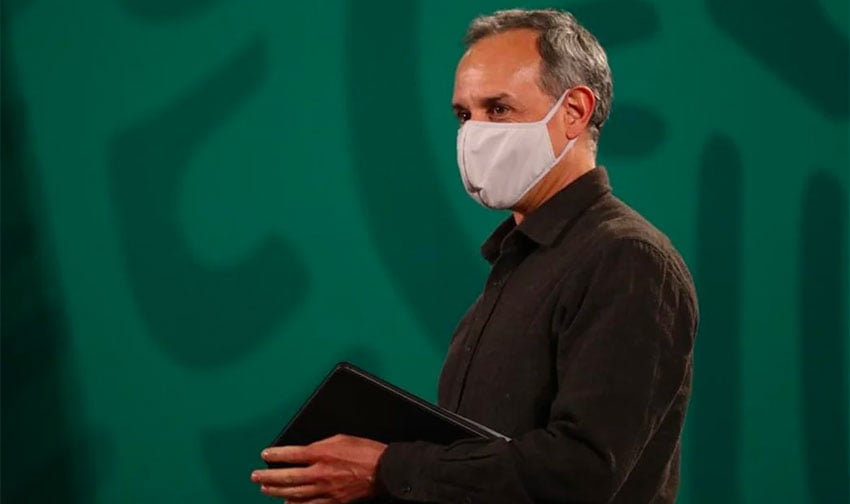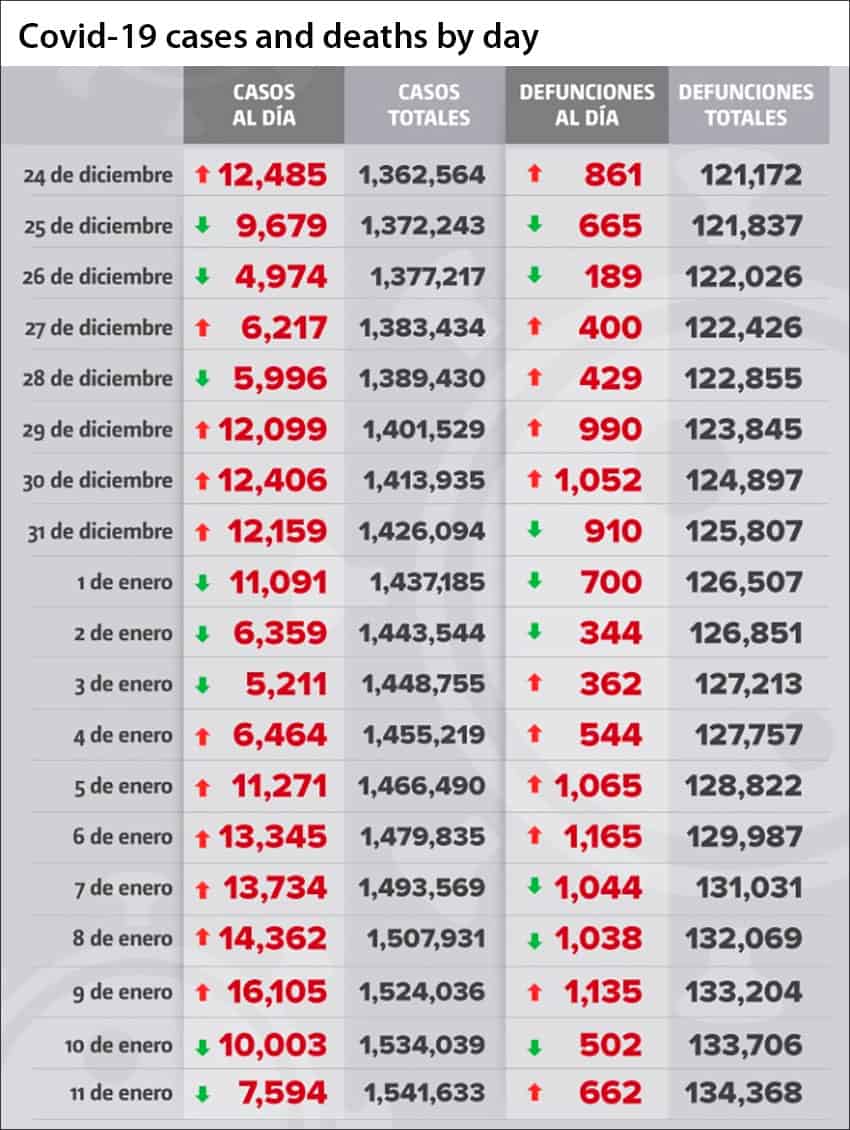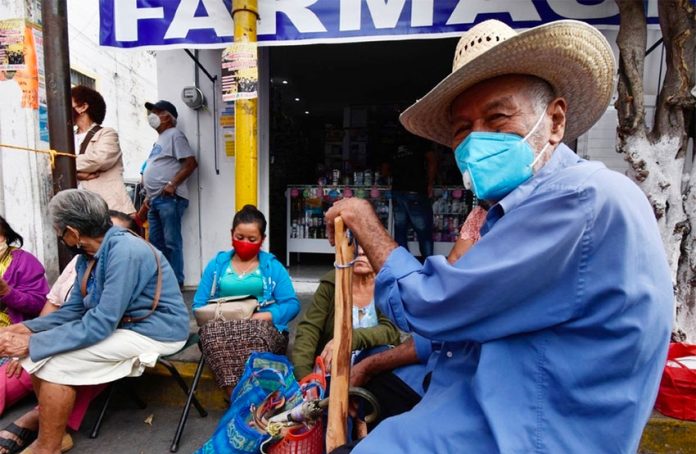The Covid-19 vaccination program will be extended to all 32 states of Mexico on Tuesday, Deputy Health Minister Hugo López-Gatell said Monday as the country recorded more than 7,000 new cases and almost 700 deaths.
“In the vaccination plan, we’re moving from the calibration phase to the expansion phase. We’re going to have vaccination units operating in Covid hospitals in the 32 federal entities,” the coronavirus point man told reporters at the Health Ministry’s nightly press briefing.
The deputy minister said the establishment of more vaccination points would “radically change” the pace of the vaccine rollout.
Mexico started immunizing healthcare workers on December 24 using the Pfizer/BioNTech vaccine but the vaccination program has been limited to Mexico City and Coahuila. So far only 87,060 people have received a first dose of the vaccine, which is administered in two shots three weeks apart.
But López-Gatell highlighted that almost 440,000 doses of the Pfizer vaccine were scheduled to arrive Tuesday, adding that they would be distributed by the military. It is expected that all health workers in Mexico will be vaccinated against Covid-19 by the end of January, he said.

The focus will subsequently shift to seniors aged 80 and over followed by those in the 70-79 and 60-69 age brackets.
President López Obrador said Tuesday that it’s expected that 15 million seniors will be vaccinated against Covid-19 between January and April. People aged under 60 with chronic diseases that make them more vulnerable to a serious Covid-19 illness will be next in line.
The president said last week that the aim was to inoculate 12.45 million seniors by the end of March, explaining that 10,000 vaccination brigades would fan out across the country to complete the task.
Presenting a five-stage national vaccination plan in December, López-Gatell said that the intention is to administer Covid-19 vaccines to about 75% of the population aged 16 and over by the end of 2021.
To reach that ambitious target, Mexico intends to use a range of Covid-19 vaccines.
The Pfizer vaccine is the only one currently being used in Mexico but the health regulator Cofepris last week approved the AstraZeneca/Oxford University shot. That vaccine – for which the government has an agreement to buy 77.4 million doses – will be used in Mexico starting in March, López-Gatell said Tuesday.
The deputy minister said Monday that the federal government has held initial discussions with Russia to purchase 24 million doses of its Sputnik V vaccine. López-Gatell said he met with Russian officials during a trip to Argentina last week and that the Mexican government reached “preliminary agreements” to purchase that number of doses – enough to inoculate 12 million people.
Speaking at López Obrador’s press conference on Tuesday, the deputy minister said the Sputnik vaccine has a “capacity and efficiency similar to the other vaccines that have been authorized.”
(Russia said in December that the vaccine had an efficacy of 91.4%.)
López-Gatell said that Cofepris began the vaccine review process on the weekend and that a decision with respect to emergency use approval will be taken soon.
Mexico also has an agreement to purchase 35 million doses of China’s CanSino Biologics single-dose vaccine. Immunization could begin in February if it is approved by Cofepris, the Foreign Affairs Ministry said last week.
The government has pledged to make vaccines available free of charge to the entire population of Mexico. López Obrador has said that he is not opposed to the private sector purchasing and administering vaccines but suggested it wouldn’t be easy due to limited global supply.

A wider rollout of Covid-19 vaccines is urgently needed in Mexico as the coronavirus is spreading more quickly now than at any other time in the pandemic.
The Health Ministry reported 7,594 new cases on Monday, pushing the accumulated tally just above 1.54 million. The official Covid-19 death toll rose to 134,368 with 662 additional fatalities registered.
Hospital occupancy levels remain a concern in several states, and scores of healthcare facilities across the country have reached 100% capacity.
The situation is particularly dire in Mexico City, the country’s coronavirus epicenter. The occupancy rate for general care beds set aside for coronavirus patients in the capital is currently 91.5%, according to federal data, while 86% of beds with ventilators are taken.
Mexico City has recorded just under 369,000 coronavirus cases, a figure that accounts for almost one quarter of total cases across Mexico. The number of Covid-19 fatalities in the capital – 23,612 – is equivalent to 17.5% of the national death toll.
Official figures for both coronavirus cases and deaths in Mexico are widely believed to be significant undercounts due to the low testing rate here.
Source: El Universal (sp), El Financiero (sp), Milenio (sp)
